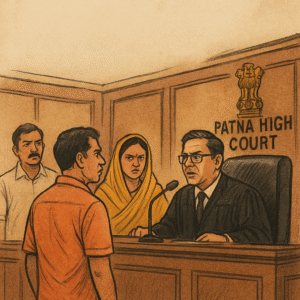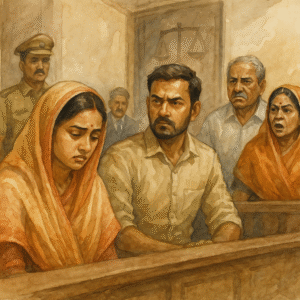The Patna High Court recently delivered an important judgment that clarifies the legal meaning of “availment” of transitional input tax credit (ITC) under the Bihar Goods and Services Tax Act, 2017 (BGST Act). The Court ruled that mere reflection of ITC in the electronic credit ledger does not amount to its “availment” unless it is actually utilized to offset tax liabilities.
Simplified Explanation of the Judgment
In this case, a partnership firm engaged in commercial manufacturing and registered under the erstwhile Bihar VAT and Entry Tax laws sought to transition unutilized input tax credit from the financial years 2007–08 and 2011–12 to the GST regime. The petitioner firm filed a TRAN-1 form under Section 140 of the BGST Act to carry forward credit worth over ₹42 lakh into the new GST system.
The State Tax Department, however, rejected the application and issued a demand order. The Assistant Commissioner of State Taxes treated the mere reflection of transitional credit in the firm’s electronic ledger as “wrong availment” under Section 73 of the BGST Act. Based on this, a tax demand of ₹42.73 lakh was raised, along with ₹9.16 lakh as interest and ₹4.27 lakh as penalty — totaling ₹56.18 lakh.
The petitioner challenged this order before the High Court, arguing that the transitional credit had not been availed or utilized and thus, could not legally justify a tax demand.
The Court analyzed Section 73 of the BGST Act and held that “availment” or “utilization” of ITC involves an actual act, such as using the credit to reduce tax liability. A mere entry in the ledger, especially one that has not been used or claimed in any return, does not meet this threshold. The Court found no evidence that the petitioner had used the transitional credit to pay taxes and, therefore, declared the entire tax demand illegal.
The Court also noted that while the petitioner’s application for transitional credit could be rejected if not compliant with Section 140, such rejection did not automatically create a tax liability or authorize coercive recovery.
Significance or Implication of the Judgment
This ruling is significant for taxpayers across Bihar and India transitioning from the older VAT regime to GST. It clarifies that:
- Transitional credit shown in electronic ledgers is not automatically considered “availed.”
- Tax authorities must prove actual utilization of credit before initiating recovery or imposing penalties.
- Mere procedural errors or rejections of TRAN-1 applications cannot be used to levy large tax demands and penalties.
For businesses, especially MSMEs, this decision safeguards against arbitrary and premature enforcement actions.
Legal Issue(s) Decided and the Court’s Decision
- Whether transitional credit reflected in the ledger amounts to “availment” under Section 73 of the BGST Act
➤ Held: No. Mere reflection does not constitute availment without utilization. - Whether penal proceedings under Section 73 can be initiated without showing actual utilization of credit
➤ Held: No. Such proceedings require proof of availment or use. - Whether rejection of TRAN-1 form entitles the department to raise a demand
➤ Held: No. Rejection may be valid, but it does not give rise to automatic tax liability.
Judgments Referred by Parties
- Union of India & Ors. v. Ind Swift Laboratories Ltd., (2011) 4 SCC 635
Case Title
M/s Commercial Steel Engineering Corporation vs. The State of Bihar & Ors.
Case Number
Civil Writ Jurisdiction Case No. 2125 of 2019
Citation(s)- 2020 (2) PLJR 44
Coram and Names of Judges
Hon’ble Mr. Justice Jyoti Saran
Hon’ble Mr. Justice Arvind Srivastava
Names of Advocates and who they appeared for
Mr. Gautam Kumar Kejriwal — Advocate for the Petitioner
Mr. Vikash Kumar (SC11) — Advocate for the Respondents
Link to Judgment
MTUjMjEyNSMyMDE5IzEjTg==-DBjyNxQOiwU=
If you found this explanation helpful and wish to stay informed about how legal developments may affect your rights in Bihar, you may consider following Samvida Law Associates for more updates.








